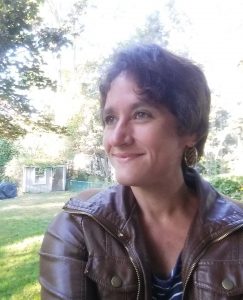Art flourishes in uncertain times. From the critical poetry of World War I and the post World War II Beat Generation to the innovative music of the Beatles and the Stones and beyond, during and after strife, creative types will make art. They rush to prove Jonathan Larson right when the “Rent” creator wrote “the opposite of war isn’t peace; it’s creation.”
 This November, about 120 Pioneer Valley creative types will join that rush, doing their best to write a novel (defined somewhat arbitrarily as 50,000 words, based on a quick word count of Aldous Huxley’s “Brave New World”) in a month.
This November, about 120 Pioneer Valley creative types will join that rush, doing their best to write a novel (defined somewhat arbitrarily as 50,000 words, based on a quick word count of Aldous Huxley’s “Brave New World”) in a month.
It’s called National Novel Writing Month, and those Valley writers will join about 400,000 more around the world — last year, the program tracked 384,126 participants, in 646 different regions, on six continents — in an enthusiastic attempt to put words to paper.
NaNoWriMo (pronounced either “REE-mo” or “RYE-mo,” depending on who you ask) is about embracing what founder Chris Baty calls “exuberant imperfection” — being willing, even eager, to be terrible now in order to get something on the page, to demand that your inner editor shut its perfectionist cakehole for five minutes so you can do something you’re not yet great at.
“The quickest, easiest way to produce something beautiful and lasting is to risk making something horribly crappy,” Baty says. “As grown-ups, we come to place undue importance on this thing called ‘competence.’” In the workplace, that keeps us from getting fired, Baty says. But when we try new things, it keeps us quitting early, afraid of failure.
“Exuberant imperfection allows you to circumvent those limiting feelings entirely,” Baty says. “It dictates that the best way to tackle daunting, paralysis-inducing challenges is to give yourself permission to make mistakes, and then go ahead and make them. In the context of novel-writing, this means you should lower the bar from ‘best-seller’ to ‘would not make someone vomit.’”
Or, to embrace the words of Papa Hemingway, it’s about knowing that “the first draft of anything is shit.”
Naila Moreira, Advocate columnist and writer-in-residence at Forbes Library, has participated in NaNo twice before, and this will be her second year as a municipal liaison — part babysitter, part cheerleader, and 100 percent writer-wrangler — for the Five College region.
“NaNo is a really different experience from day-in, day-out writing,” Moreira says. “NaNo is really an idea-generating endeavor, and is less about structure and very high quality writing than it is about producing a draft that you can work with.”
Moreira is what veterans call a “NaNo rebel,” worried less about the arbitrary rules of the program than about using the month to make forward progress.
“I have people who come with a 500-word-a-day goal, or who want to write one poem every day,” she tells me. “I think NaNoWRiMo is about committing to a writing practice. It’s about having some steady discipline to say ‘I’m going to take this month and try out a really steady commitment to my writing practice.’”
Her co-municipal liaison, Lou Kendrick, is more of a NaNo traditionalist, but at heart, she says, NaNo is all about learning to enjoy writing.
“I think a lot of the time if you do writing, or really any kind of art, you sort of think of the process as the chore to get to the good part, which is having your finished product,” Kendrick says. “There’s a point where you realize ‘I’m not having any fun with this; I’m way too focused on the outcome,’ and if I’m having a terrible time, I’m not going to create anything good.”
Kendrick encourages people to enjoy the process, to have fun with it. I agree — with this article, for instance, I’m more likely to finish something if I’m having fun with it, instead of worrying about being perfect or clever.
“NaNoWriMo gets one lesson right,” says Chuck Wendig, an author who runs the writing website terribleminds.com. “Writing can at times be like a sprint and you can’t hover over every day’s worth of writing, picking ticks and mites from its hair — you will always find more ticks, more mites. The desire for perfection is like a pit of wet coal silt: it will grab your boots like iron hands and never let you go.”
Wendig is one of the many published writers who see NaNo as a flawed, but valuable, exercise in putting aside the idea of the “one day” novel — as in, “one day I will write this novel” — and actually starting on that road. But he cautions against thinking of your novel as done after Nov. 30 — whether you wrote 50 words, 50,000, or 500,000.
“You have permission to suck — temporarily,” he says. “The point is, you’re not aiming to be a shitty writer with prose on par with a mouthful of toilet water, but you must allow yourself permission to embrace imperfection. You’re not trying to write irreparable fiction, you’re trying to make a go at a flawed story whose bones are good but whose components may need rebuilding.”
Wendig also sees community as a point in NaNo’s favor.
“NaNoWriMo’s shining awesomeness comes in the form of being connected to something greater,” Wendig says. “You’re all embarking on a really weird journey together. Use that. Enjoy the camaraderie.”
Both Moreira and Kendrick agree.
“What I value about writing in the Pioneer Valley is the concentration of talented people who are nevertheless kind and welcoming. I have been in big cities — I was in Seattle; I have been in Boston — and there’s so much more of an anonymous and competitive vibe, at least in the communities I happened to bump across,” she says. “Here, warm and welcoming is the default. Not only that, but there are so many smart people here, so many talented people.” Partly the concentration of colleges, part of it is just the vibe. “It’s a place for oddballs and creatives, and I love that about here.”
Kendrick extends that further, to praise the Valley’s acceptance of LGBTQ+ people and incorporating progressive ideas into writing.
“We tend to get a lot of people who are queer writers,” Kendrick says. “I really love that, because I’m a huge fantasy geek, and it becomes kind of a bummer when you go into the wider fantasy world and have to tell the gay feminist part of my brain ‘you can take a break now; I just want to enjoy this book; I’m just going to kind of skim that paragraph.’ So having people talking about ‘I’m writing my fantasy novel and I’m using it to look critically about gender,’ is like yes, this is the generation of writers I really want to see: People who are still using all of the good things about fantasy, but not being douchey people about it.”
Other than commiseration with fellow writers about the long, strange trip you are all on, the NaNoWriMo community is best represented by write-ins. These are often weekly group meetings of writers from all over the local region, which serve as both meet-and-greets for other would-be authors and structured writing time, free from the distractions of the Internet or whatever reruns are on TV.
There are several scheduled for November all over western Massachusetts, run by both the Western Mass region and the Five College region, which Kendrick reminds is for everyone in the area, not just Five College students.
“Please come,” Kendrick says. “We love you, probably. I mean, I just met you, but probably we love you.”
National Novel Writing Month runs for the month of November, kicking off on Nov. 1 at 7 p.m. at Forbes Library in Northampton. For more information, head to nanowrimo.org.
Steve Musal can be reached at smusal@gazettenet.com.





